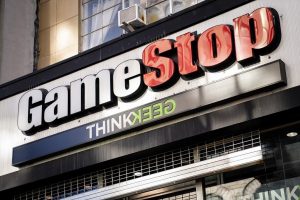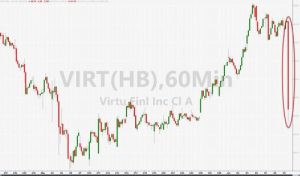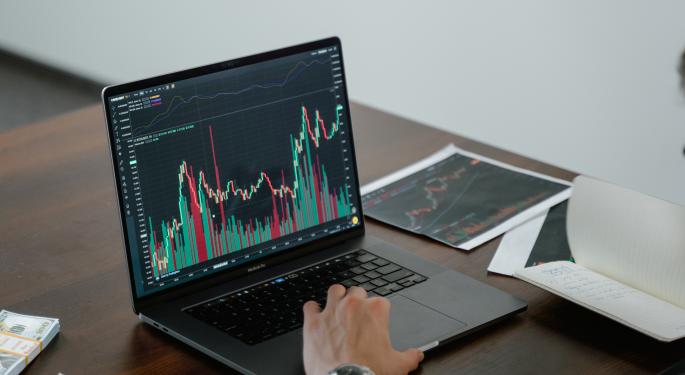Matthew Fox, 20 July 2021
 Robinhood said it expects to pay a $30 million penalty in relation to an anti-money laundering probe of its cryptocurrency business, according to an amended S-1 filed with the SEC on Monday.
Robinhood said it expects to pay a $30 million penalty in relation to an anti-money laundering probe of its cryptocurrency business, according to an amended S-1 filed with the SEC on Monday.
The online trading app said that in July of 2020, the New York Department of Financial Services said Robinhood’s crypto unit had a number of “matters requiring attention,” primarily focused on anti-money laundering and cybersecurity-related issues. Continue reading “Article: Robinhood said it expects to pay a $30 million fine as part of anti-money laundering probe of its crypto business”

 Before dark pools, institutional investors had to trade in blocks of shares outside trading hours to avoid upsetting the market. Now, the utility found within dark pools is so high that some market makers have embedded them within their operations. There are certainly some benefits here in terms of increased liquidity, but there’s another side of the coin as well.
Before dark pools, institutional investors had to trade in blocks of shares outside trading hours to avoid upsetting the market. Now, the utility found within dark pools is so high that some market makers have embedded them within their operations. There are certainly some benefits here in terms of increased liquidity, but there’s another side of the coin as well. Hi all, it’s Annie from Bloomberg’s investing team. Soon, Robinhood Markets Inc. will go public. The debut—which could happen in the coming weeks—will see Robinhood entrust its share price to the same retail investors who have been using its app to roil markets.
Hi all, it’s Annie from Bloomberg’s investing team. Soon, Robinhood Markets Inc. will go public. The debut—which could happen in the coming weeks—will see Robinhood entrust its share price to the same retail investors who have been using its app to roil markets. Anti-Money Laundering Issues Robinhood Crypto to Pay $15M fine Over Security to resolve a legal dispute with NYDFS (New York State Department of Financial Services) over charges related to crypto unit’s handling of cybersecurity and anti-money laundering.
Anti-Money Laundering Issues Robinhood Crypto to Pay $15M fine Over Security to resolve a legal dispute with NYDFS (New York State Department of Financial Services) over charges related to crypto unit’s handling of cybersecurity and anti-money laundering. Robinhood Markets Inc., dogged by fines and regulatory scrutiny, revealed several new inquires from state and federal watchdogs as it seeks to sell shares in one of the year’s most anticipated public offerings.
Robinhood Markets Inc., dogged by fines and regulatory scrutiny, revealed several new inquires from state and federal watchdogs as it seeks to sell shares in one of the year’s most anticipated public offerings. That’s right: The Labor Department said this morning that the U.S. economy added a better-than-expected 850,000 jobs in June … and economists are both excited and scared. On one hand, economists praised the strong jobs growth as proof that the economy is continuing to rebound strongly from the COVID-19 pandemic.
That’s right: The Labor Department said this morning that the U.S. economy added a better-than-expected 850,000 jobs in June … and economists are both excited and scared. On one hand, economists praised the strong jobs growth as proof that the economy is continuing to rebound strongly from the COVID-19 pandemic. Robinhood Markets Inc. unleashed a revolution, marshaling throngs of new traders to financial markets in an upside-down year. But the free trading app’s breakneck growth hurt the same small-time investors it sought to empower.
Robinhood Markets Inc. unleashed a revolution, marshaling throngs of new traders to financial markets in an upside-down year. But the free trading app’s breakneck growth hurt the same small-time investors it sought to empower. How the GameStop Hustle Worked
How the GameStop Hustle Worked The Wall Street establishment and the Reddit, Robinhood-fueled meme stock traders don’t see eye to eye, on just about anything. In fact, rolling eyes at the stock market’s traditional ways is inherent in trades like GameStop and AMC Entertainment.
The Wall Street establishment and the Reddit, Robinhood-fueled meme stock traders don’t see eye to eye, on just about anything. In fact, rolling eyes at the stock market’s traditional ways is inherent in trades like GameStop and AMC Entertainment. vThe Covid-19 crisis came at the end of more than two decades that witnessed a significant transformation of financial markets with main catalysts such as financial innovation, technology adoption, and financial regulations. The 2020 stock market’s roller coaster (record price levels and volatility) exposed the financial system’s fragility. This year, the increased volatility in so-called ‘meme’ stocks – i.e., stocks whose trading volume increases not because of the company’s good performance, but because of hype on social media –, has highlighted several problems in financial markets. Although seemingly unimportant, the risk that these events could pose to the entire financial system opens the door for discussions on the implementation of new regulations (or the improvement of older ones).
vThe Covid-19 crisis came at the end of more than two decades that witnessed a significant transformation of financial markets with main catalysts such as financial innovation, technology adoption, and financial regulations. The 2020 stock market’s roller coaster (record price levels and volatility) exposed the financial system’s fragility. This year, the increased volatility in so-called ‘meme’ stocks – i.e., stocks whose trading volume increases not because of the company’s good performance, but because of hype on social media –, has highlighted several problems in financial markets. Although seemingly unimportant, the risk that these events could pose to the entire financial system opens the door for discussions on the implementation of new regulations (or the improvement of older ones). 
 The rise of the “meme stocks” has been a fascinating adventure with the combination of ubiquitous technology and the ability to drive trading by retail investors in a way that has never been experienced before. While a certain amount of manipulation of markets has always existed, the recent advent of trading forums, like Wallstreetbets on Reddit, and other digital communication methods, has shifted some of the influence away from big money to smaller investors pooling resources.
The rise of the “meme stocks” has been a fascinating adventure with the combination of ubiquitous technology and the ability to drive trading by retail investors in a way that has never been experienced before. While a certain amount of manipulation of markets has always existed, the recent advent of trading forums, like Wallstreetbets on Reddit, and other digital communication methods, has shifted some of the influence away from big money to smaller investors pooling resources. This week and last, AMC was targeted again and its shares skyrocketed 496% between May 24 and June 2 before retracing Thursday.
This week and last, AMC was targeted again and its shares skyrocketed 496% between May 24 and June 2 before retracing Thursday.